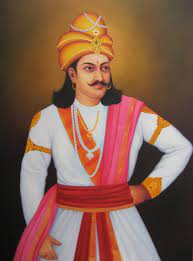Virginia Woolf Biography:
- Adeline Virginia Stephen, known to the world as Virginia Woolf, was a towering figure in 20th-century literature.
- Born in London in 1882, she navigated a complex life marked by family loss, mental health struggles, and a vibrant career as a novelist, essayist, and publisher.
- This biography delves into the defining phases of Woolf’s life and explores how her personal experiences intertwined with her masterful literary creations.
Virginia Woolf Nationality & Age:
- Woolf was a proud British citizen, born and raised in London.
- She lived to be 59 years old, leaving behind a lasting legacy that continues to inspire generations of readers and writers.
Virginia Woolf Education and Schooling:
- Unlike many of her contemporaries, Woolf did not receive a formal education at a university.
- Due to societal norms and family tragedies, she was largely homeschooled by her father, a renowned Victorian intellectual.
- This unconventional upbringing fostered Woolf’s independence and self-directed learning, allowing her to delve into a diverse range of literature, history, and philosophy.
Virginia Woolf Relationship and Personal Life:
- Woolf’s personal life was shaped by both love and loss.
- She married writer and publisher Leonard Woolf in 1912, finding a supportive partner who played a pivotal role in her literary endeavors.
- Although the couple remained childless, their relationship was a source of strength and stability throughout Woolf’s life.
- Woolf also found intellectual companionship and emotional comfort within the Bloomsbury Group, a circle of prominent artists, writers, and thinkers.
Virginia Woolf Career Beginnings:
- Woolf’s literary journey began with her personal diaries, where she recorded her thoughts, observations, and emotional experiences.
- These writings later served as a wellspring of inspiration for her novels and essays.
- Her first published novel, “The Voyage Out,” appeared in 1915, marking the start of a prolific career that would yield groundbreaking works like “Mrs. Dalloway” (1925), “To the Lighthouse” (1927), and “A Room of One’s Own” (1929).
Virginia Woolf Career and Contributions:
- Woolf’s career was marked by innovation and experimentation.
- She pioneered the stream-of-consciousness technique, delving into the inner lives and subjective experiences of her characters.
- Her works offered a nuanced exploration of feminine identity, challenging societal expectations and advocating for women’s voices and intellectual freedom.
- Beyond her novels, Woolf’s essays on topics like literature, society, and feminism continue to resonate with readers today.
Virginia Woolf Achievements and Awards:
Woolf’s achievements include:
-
- Being recognized as a leading figure in modernist literature.
- Acclaim for her groundbreaking novels and essays.
- The establishment of Hogarth Press, which published seminal works by notable authors.
- Although she did not receive any major literary awards during her lifetime, her influence and reputation have only grown in the decades since.
Virginia Woolf Conclusion and Legacy:
- Virginia Woolf’s life and work continue to inspire and provoke thought.
- Her bold innovations in narrative form, insightful exploration of human consciousness, and passionate advocacy for women’s rights remain relevant and powerful even today.
- As we read and reread her works, Woolf’s voice continues to echo across generations, reminding us of the importance of introspection, creative expression, and the enduring power of literature.



